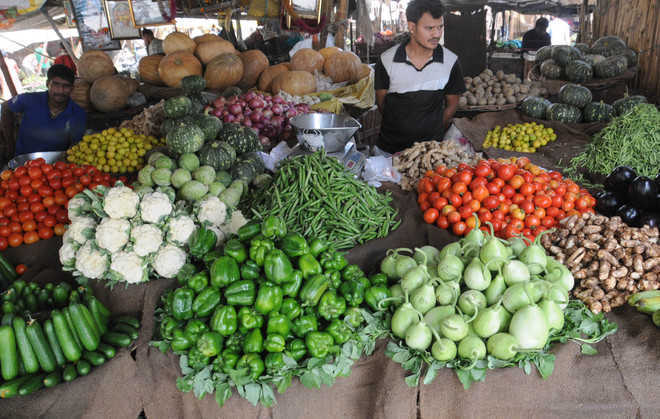Low yield, monsoon disrupting vegetable supplies, prices expected to remain high
Ten News Network
New Delhi, 29th July 2023: Farmers and traders in India have predicted that vegetable prices would remain high for a longer period of time due to irregular monsoon rains that delayed planting and damaged maturing crops.
Vegetable prices, which account for 6% of the overall consumer price index (CPI), reached a seven-month high in June, jumping 12% month on month, according to government data.
Prices typically begin to fall in August as the harvest enters the market, but traders expect prices to remain high until October as supplies remain scarce.
Anil Patil, a Mumbai based trader quoted by MoneyControl stated, “The monsoon is disrupting the vegetable supply chain. This year, we are going to witness higher vegetable prices for a prolonged period.”
Costlier essentials including onions, beans, carrots, ginger, chilies, and tomatoes have stoked voter angst ahead of upcoming state elections. The higher costs are anticipated to fuel retail inflation, which is expected to reach a seven-month high in July, reducing the possibility of a rate cut by the Reserve Bank of India (RBI) this year.
Tomato prices have risen more than 1,400% at the wholesale market in the last three months to a record 140 rupees ($1.71) per kg, prompting many households and eateries to reduce purchases.
Farmers in Karnataka’s third-largest tomato-producing region claim bad rainfall, increased temperatures, and a virus epidemic have harmed the crop, which was planted on less land than a year earlier due to a price drop.
Srinath Gowda a farmer quoted by MoneyControl stated, “Supplies are just 30% of normal as yields.”
Other crops have also been harmed by the monsoon. According to the weather service, key vegetable-producing northern and western states received up to 90% more rain than average, while other eastern and southern states received up to 47% less rain.
According to a meteorological department official, some states had no rain for weeks before being drenched with a month’s worth of rain in a week.
According to HSBC experts, supply interruptions and rising food prices are anticipated to push retail inflation to 6.5% in July, the highest level this year and above the Reserve Bank of India’s 2% to 6% target range. Economists currently predict that the RBI would keep interest rates high until mid-2024.
Supplies from crops sown in June should begin to increase in the coming weeks, but this will not be enough to keep prices down, according to Rajendra Suryawanshi, a vegetable merchant in Pune.
“A meaningful correction in prices would begin in September, and prices could fall to a normal level in October,” Suryawanshi said.
Discover more from tennews.in: National News Portal
Subscribe to get the latest posts sent to your email.



